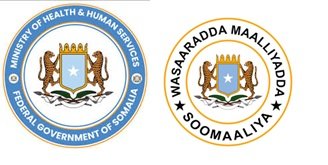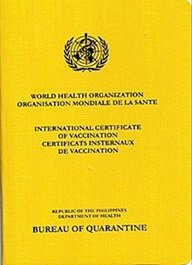By Isha Qarsoon
Editors Note: Isha Qarsoon is a platform dedicated to addressing critical issues pertaining to good governance, corruption, and social challenges. It emphasizes investigative journalism as a means to uncover and disseminate information, enabling the public to engage with and understand the realities of the country. Through its focus on transparency and accountability, the forum aims to foster informed public discourse and contribute to societal awareness and reform.
____________
Governance is the foundation of a functioning state, but in fragile countries, it often breaks down in ways that affect everyday life. Policies are announced and reversed overnight, government institutions operate at cross-purposes, and public trust erodes as officials prioritize revenue collection over service delivery. A recent controversy in Somalia captures these dysfunctions in a single incident: the Ministry of Health’s attempt to impose a $45 health booklet fee on travelers, only for the Ministry of Finance to step in and cancel it almost immediately. On the surface, this might seem like a simple policy dispute. But in reality, it reveals deeper governance failures, weak institutional coordination, financial mismanagement, and a government struggling to control its own agencies.
At the heart of the controversy was a sudden decree from the Ministry of Health, requiring all travelers entering and leaving Somalia to receive three vaccinations: malaria, polio, and meningococcal along with a mandatory health booklet, priced at $45. The decision was announced in late January 2025 and set to take effect just days later, giving travelers little time to prepare. Yet, what was most unusual about this policy was not just the lack of public awareness or planning, but the absence of any pressing health crisis to justify it. Countries usually introduce mandatory vaccinations in response to disease outbreaks, backed by recommendations from global health organizations like the World Health Organization. In this case, there was no outbreak, no advisory, and no clear explanation for why travelers suddenly needed these vaccines or why they had to pay for a health booklet to prove it.

Within a day or so, the Ministry of Finance intervened, revoking the fee and declaring it illegal. Citing the Public Revenue Management Act of 2019 and a Cabinet Order from August 2024, the Ministry of Finance made it clear that only it had the authority to introduce or amend government fees. The health ministry, like all other government agencies, was not allowed to collect revenue outside of the Treasury system. What should have been a coordinated public health policy had turned into an embarrassing display of government dysfunction, with one ministry publicly overruling another. This was more than just a technical error; it was a sign that Somalia’s institutions were operating in silos, with government agencies making decisions independently rather than as part of a unified system.
The deeper concern was why the Ministry of Health imposed this fee in the first place. If this were truly about public health, why was there no evidence of an urgent disease risk? And why did the policy focus on a $45 booklet rather than making vaccines widely available? The rushed nature of the decision, combined with the financial element, suggests a different motivation: revenue. Many fragile governments struggle with budget shortfalls, leading ministries and agencies to find creative ways to generate their own income streams. Instead of relying on central funding, they introduce unofficial fees, collect payments outside the formal Treasury system, and treat essential public services as revenue-generating opportunities. The Ministry of Health’s move fits this pattern, attempting to introduce an unauthorized fee without the necessary financial approval.
This is not unique to Somalia. Across Africa and beyond, governments have struggled with similar financial dysfunction. Nigeria, for example, faced a major crisis in 2012 when its government tried to remove fuel subsidies without properly coordinating the policy across ministries. The result was mass protests and economic instability, forcing the government to reverse course. In Kenya, low wages and poor oversight have led to police officers regularly demanding bribes at roadblocks, turning informal payments into an expected part of daily life. And in South Sudan, multiple government agencies operate independently, collecting and spending revenue with little to no central oversight, leading to a fragmented and chaotic financial system. The underlying problem in all these cases is the same: when institutions lack clear financial controls and coordination, they start acting in their own interests rather than as part of a functioning government.

Somalia’s case is particularly alarming because it highlights how easily public trust can be eroded when the government contradicts itself. Travelers who were told they had to pay for a health booklet one day were told it was illegal the next. Policies should not change overnight, especially when they involve financial transactions and international travel. When governments make rules and then immediately reverse them, citizens start to lose faith in the system. And when ministries impose fees without clear justification, people assume the worst that their money is not going to public services, but into someone’s pocket.
What makes this even more concerning is the precedent it could have set. If the Ministry of Health had succeeded in implementing this fee, what would have stopped other ministries from doing the same? The Ministry of Transport could have introduced an exit tax at airports. The Ministry of Interior could have charged processing fees for passports at the airport. The Immigration Department could have required payments for exit visas. Without strong financial oversight, the government could devolve into a collection of competing agencies, each trying to extract revenue from the public in whatever way they can. The fact that the Ministry of Finance stepped in to stop this practice is reassuring, but it should never have reached this point in the first place.
The lesson here is that governance is not just about making rules— it is about ensuring that policies are coordinated, legally sound, and implemented in a way that builds trust. Somalia cannot afford a system where ministries operate independently, issuing fees without oversight and creating confusion for the public. To prevent further breakdowns, the government must strengthen inter-ministerial coordination, ensuring that all policies go through a proper approval process before they are announced. Financial discipline must be enforced so that no government agency can collect revenue outside of the formal system. Transparency must be prioritized so that citizens understand not just what policies are being implemented, but why.
This is about more than just a health booklet or a $45 fee. It’s about whether the government can function as a single, cohesive entity or if it will continue to be a patchwork of disconnected institutions. Somalia is at a critical moment in its development, and how it handles governance challenges like this will determine whether it builds a stronger state or falls into deeper dysfunction. The reversal of the fee was the right decision, but it should not have taken a public dispute to get there. The real test is whether Somalia’s leaders will learn from this mistake and put safeguards in place to prevent it from happening again.
Isha Qarsoon
The writer can be reached at: IshaQarsoon1@gmail.com


Leave a Reply